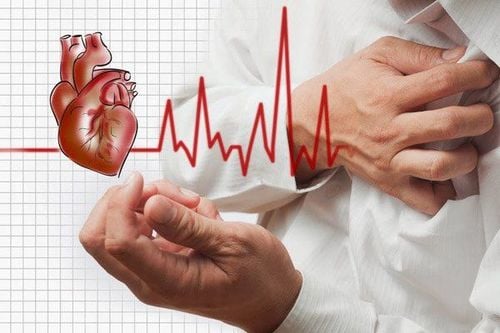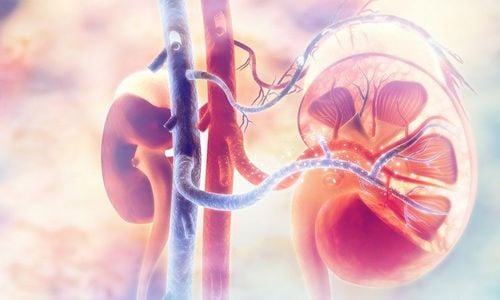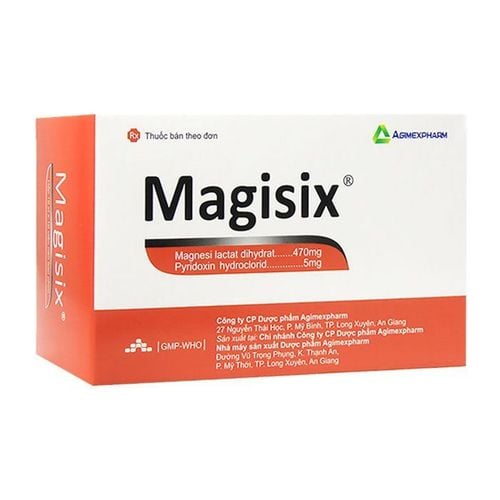This is an automatically translated article.
Magnesium is an essential mineral for the body. However, excess or deficiency of magnesium will cause dangerous symptoms for human health.
1. The role of magnesium in the body
Magnesium is one of the minerals with an important role for humans, participating in about 300 biochemical reactions in the body. Most of the magnesium in the body is concentrated in the bones (about 50-75% of the total, in which magnesium combines with calcium and phosphorus in the process of bone formation). The remaining magnesium is distributed in muscles, soft tissues and very small amounts in the blood.
Magnesium is a very important component for the functioning of the heart, has the effect of reducing the oxygen demand of the heart muscle during rest as well as during labor and exercise; Enhance heart function and prevent cardiovascular diseases. Magnesium also regulates blood sugar and stabilizes blood pressure. The role of magnesium is extremely necessary in the process of creating muscle and liver glycogen from blood glucose and participates in the structure of tissues, including bones.
In addition, this nutritional element also participates in the composition of many enzymes with the function of regulating many different processes of the body, regulating intestinal motility and participating in the breakdown of glucose and fatty acids. and amino acids in the entire energy metabolism. In addition, magnesium also plays an important role in the synthesis of lipids and proteins, helps to build bones and other tissues, and ensures stability in nerve transmission and muscle contraction. In addition, magnesium also has the effect of stimulating the immune system, protecting organs, helping cells to resist the bad effects of the external environment and preventing the penetration of heavy metals from chemicals. , industrial emissions, smoke from cars, motorbikes and gasoline-powered engines.
Magnesium requirement for an adult is about 350 - 400 mg/day. With regular physical workers, hard work, sports athletes, magnesium needs need more than 1.5 - 2 times. On the other hand, children need less magnesium (6 months old: 30mg; 1-3 years old: 80mg; 9-13 years old: 240mg magnesium/day).

Magie là một thành phần rất quan trọng đối với hoạt động chức năng của tim.
2. In what case does magnesium decrease?
Low blood magnesium levels can be a sign that the body is not absorbing enough or excreting too much magnesium. Hypomagnesemia can also cause hypocalcemia and is also commonly associated with hypokalemia. Magnesium deficiency is often seen in the following cases:
People with poor diet (common in the elderly, malnourished and alcoholics); Persistent diarrhea; Digestive disorders (Crohn's disease); Diabetes is not well controlled; After surgery; Hypoparathyroidism; Long-term use of diuretics; Severe burns; Pregnancy toxicity in pregnant women. Clinical signs of magnesium deficiency are likely to appear only when serum magnesium levels fall below 0.5 mmol/L.
3. Symptoms of magnesium deficiency
3.1. High blood pressure People with good blood pressure are usually the group with the highest magnesium intake. Accordingly, magnesium has the effect of relaxing blood vessels and supporting the transport of potassium, an important mineral that helps keep blood vessel walls soft, blood circulates easily, so blood pressure is stable. When the body is deficient in magnesium, the risk will lead to high blood pressure.
3.2. Arterial Calcification Magnesium deficiency has a negative impact on arterial health. Low magnesium can cause the arteries to become calcified, because magnesium is the agent that helps balance calcium levels in the body. With a deficiency of this element, arteries lose their elasticity, become calcified and eventually increase the risk of cardiovascular diseases, especially cardiac arrest and stroke.
In addition to the harmful effects of making arteries calcified and hard, low magnesium also causes muscle tissue to stiffen, leading to the risk of cramps. In addition, magnesium also has the effect of stabilizing nerve axons or nerve fibers that transmit information from the body. If the body lacks too much magnesium, the axons react quickly, resulting in muscle tremors, spasms, and even severe weakness.
3.3. Disrupting sleep Adequate magnesium intake will help improve sleep quality. Magnesium maintains the function of certain receptors in the brain, allowing the brain to transition into a more relaxed state and fall asleep more easily. On the contrary, if magnesium deficiency, patients will often have sleep disruption, affecting many other functions of the body.
3.4. Energy depletion Magnesium is an essential mineral in the energy production of adenosine triphosphate (ATP) in cells. Magnesium completes this function by binding to ATP - the main energy "coin" in cells, helping the body to stay in a clear, healthy state. When magnesium deficiency, the body always feels tired, mentally weak.
3.5. Anxiety and depression In addition to regulating calcium levels, magnesium also has the function of controlling glutamate. Calcium and glutamate are two agents that activate the N-methyl-D-aspartate (NMDA) receptor, leading to long-term over-activation that can damage neurons, ultimately leading to cell death. .
This is a phenomenon that is very difficult to overcome for brain cells and can cause a lot of negative effects on human mental health, especially the effects of restlessness, anxiety and depression.
3.6. Effects on bones Similar to calcium, magnesium is important for bone health. Magnesium facilitates the absorption of calcium by vitamin D as well as stimulates the hormone calcitonin to attract calcium in soft tissues and transfer it to the bones.

Tương tự như canxi, magie rất quan trọng đối với sức khỏe của xương.
4. How to supplement magnesium?
When magnesium deficiency, patients can supplement by using rice, wheat, oats, which are the top magnesium-rich foods, in which raw rice sources are easy to find. Each 100g of raw rice will contain about 781 mg of magnesium (accounting for 195% of the daily magnesium requirement).
Besides, pumpkin (pumpkin), watermelon seeds in our country are also quite easy to find and are an ideal source of magnesium. Accordingly, every 100g of pumpkin seeds will provide 535mg of magnesium, while 100g of watermelon seeds contain about 515mg. In addition, sunflower seeds not only rank first in vitamin E content, but also contain a high amount of magnesium (for every 100g of sunflower seeds, there are about 325mg of magnesium, accounting for 81% of the daily need).
Green vegetables are foods that not only provide an excellent amount of vitamins, but also provide the necessary daily magnesium. Eating raw or processed vegetables helps the body absorb essential nutrients. The vegetables rich in magnesium must be mentioned are broccoli, broccoli, kale, turnip leaves, celery, cucumber, artichoke ...
In the case of magnesium supplements by pharmaceuticals, there should be indications and use according to the doctor's prescription, do not arbitrarily buy used drugs or use supplements of unknown origin.
5. Who is prone to excess magnesium?
Excess magnesium in the blood is rarely caused by dietary sources but is usually due to decreased excretion or excessive magnesium supplementation. An increase in the concentration of magnesium in the blood is often seen in the following cases:
Patients with renal failure; Hyperparathyroidism, hypothyroidism; Being dehydrated; Diabetic acidosis; Addison's disease ; Use magnesium-containing antacids or laxatives.
6. Symptoms of too much magnesium
Common symptoms of magnesium excess are nausea, vomiting, diarrhea, dizziness, muscle weakness. Overdosing on magnesium leads to adding too much magnesium to the body, causing heart damage or respiratory failure, especially for people with pre-existing kidney disease.
For these patients, it is necessary to go to the hospital to monitor cardiovascular and respiratory function and give drugs to stimulate the body to excrete excess magnesium, in order to improve the symptoms of magnesium excess.
Please dial HOTLINE for more information or register for an appointment HERE. Download MyVinmec app to make appointments faster and to manage your bookings easily.













